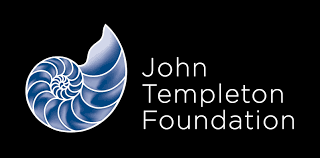Pushing the Boundaries
Agency, Evolution, and
the Dynamic Emergence
of Expanding Possibilities
Agency, Evolution, and
the Dynamic Emergence
of Expanding Possibilities
Project leader: Dr. Johannes Jaeger
Project co-leader: Prof. Dr. Tarja Knuuttila
Project co-leader: Prof. Dr. Tarja Knuuttila
Background
Our science, just like our modern worldview, is largely mechanistic. In other words, we see nature as a kind of a machine (a “clockwork”) that we can control, predict, and exploit. This exploitative worldview has led to much empirical success in the natural sciences over the past few centuries, but also underlies many of humanity’s most existential and pressing challenges today.
In this project, we pursue the idea of a different kind of science, focused on organismic agency and its role in evolution. It does not view the world as a mechanism, but as a creative open-ended process.
The main focus of our investigation lies on the simple question “how do organisms manage to act on their own behalf?” This, in fact, is what most strongly separates the living world from the non-living.
Unfortunately, the concept of “agency”—the ability of a living organism to act -- is rarely studied in contemporary biology, probably because it is strongly associated with teleology, a kind of purposeful explanation that is shunned in mechanistic science.
Our project aims to address this fundamental issue by providing an analysis of organismic agency, which shows that it is fully compatible with the philosophical principles of naturalistic explanation in science.
We are also interested in learning how (or how far) we can capture the ability to act in mathematical models of living cells and organisms, since we do not yet have such models in biology. Indeed, this kind of model may require entirely new kinds of computational methods.
Our science, just like our modern worldview, is largely mechanistic. In other words, we see nature as a kind of a machine (a “clockwork”) that we can control, predict, and exploit. This exploitative worldview has led to much empirical success in the natural sciences over the past few centuries, but also underlies many of humanity’s most existential and pressing challenges today.
In this project, we pursue the idea of a different kind of science, focused on organismic agency and its role in evolution. It does not view the world as a mechanism, but as a creative open-ended process.
The main focus of our investigation lies on the simple question “how do organisms manage to act on their own behalf?” This, in fact, is what most strongly separates the living world from the non-living.
Unfortunately, the concept of “agency”—the ability of a living organism to act -- is rarely studied in contemporary biology, probably because it is strongly associated with teleology, a kind of purposeful explanation that is shunned in mechanistic science.
Our project aims to address this fundamental issue by providing an analysis of organismic agency, which shows that it is fully compatible with the philosophical principles of naturalistic explanation in science.
We are also interested in learning how (or how far) we can capture the ability to act in mathematical models of living cells and organisms, since we do not yet have such models in biology. Indeed, this kind of model may require entirely new kinds of computational methods.
Methodology & Project Components
In our project, we want to push the boundaries of what we can model and predict in systems that are (or that contain) organismic agents. Such systems not only include populations of evolving organisms, but also higher-level ecosystems, societies, and economies.
We take a two-pronged approach to study such systems.
First, we use the philosophy of biology to clarify what some of the concepts we use actually mean. In particular, a theory of agency requires us not only to know what it means for an organism to “act on its own behalf,” but also to understand problems such as the emergence of behavior in evolution, or what makes this behavior particularly complex (as opposed to, say, the behavior of a rock). To better understand these problems, we use philosophy to explain the ever-changing organization of living systems: it is not what organisms are made of, but how they are put together which makes them alive, that is, self-manufacturing (autopoietic) and able to initiate actions from within.
In the second part of the project, we take a more practical approach. Informed by the philosophical investigations described above, we will create a mathematical and computational framework (a bit like a new programming language) that allows us to capture organismic agency in simulations of organisms that behave and evolve.
Many efforts have been made to come up with such frameworks in the past. Here, we will use a number of new ideas to extend these existing efforts. In particular, we are interested in capturing the self-maintaining organization of an organism, and the way it generates actions. In addition, we will focus on the role that randomness plays in this process, and how we can generate reliable behavior in light of the many fluctuations within an organism and in the environment it encounters.
Some theoreticians (including the project leader) have predicted that this is not entirely possible. By trying anyway, we can find out
In this sense, failing in our task to come up with a perfect model of a living organism may teach us more about life than being successful with this ambitious task. Whatever we will encounter on our journey, we are sure to learn something new.
As a final part of the project, we intend to bring the discussion of agency and a post-mechanistic science to other scientists, and the general public, because we believe that a transition towards a more participatory and sustainable view of the world is essential for human survival on the planet.
This part of the project involves a book that outlines the problems described here for a general audience, and a creative arts & science collaboration that takes the ideas we generate and engages with them in a serious but playful way.
In our project, we want to push the boundaries of what we can model and predict in systems that are (or that contain) organismic agents. Such systems not only include populations of evolving organisms, but also higher-level ecosystems, societies, and economies.
We take a two-pronged approach to study such systems.
First, we use the philosophy of biology to clarify what some of the concepts we use actually mean. In particular, a theory of agency requires us not only to know what it means for an organism to “act on its own behalf,” but also to understand problems such as the emergence of behavior in evolution, or what makes this behavior particularly complex (as opposed to, say, the behavior of a rock). To better understand these problems, we use philosophy to explain the ever-changing organization of living systems: it is not what organisms are made of, but how they are put together which makes them alive, that is, self-manufacturing (autopoietic) and able to initiate actions from within.
In the second part of the project, we take a more practical approach. Informed by the philosophical investigations described above, we will create a mathematical and computational framework (a bit like a new programming language) that allows us to capture organismic agency in simulations of organisms that behave and evolve.
Many efforts have been made to come up with such frameworks in the past. Here, we will use a number of new ideas to extend these existing efforts. In particular, we are interested in capturing the self-maintaining organization of an organism, and the way it generates actions. In addition, we will focus on the role that randomness plays in this process, and how we can generate reliable behavior in light of the many fluctuations within an organism and in the environment it encounters.
Some theoreticians (including the project leader) have predicted that this is not entirely possible. By trying anyway, we can find out
- how far we can get with mathematical models and which parts of an organism’s organization and behavior such models can capture, and
- we can strive to better understand the limits of predictability in such systems.
In this sense, failing in our task to come up with a perfect model of a living organism may teach us more about life than being successful with this ambitious task. Whatever we will encounter on our journey, we are sure to learn something new.
As a final part of the project, we intend to bring the discussion of agency and a post-mechanistic science to other scientists, and the general public, because we believe that a transition towards a more participatory and sustainable view of the world is essential for human survival on the planet.
This part of the project involves a book that outlines the problems described here for a general audience, and a creative arts & science collaboration that takes the ideas we generate and engages with them in a serious but playful way.


